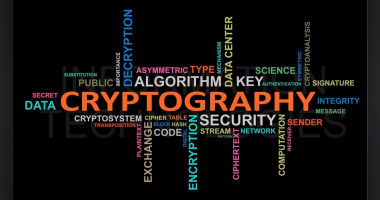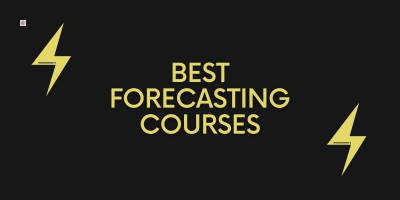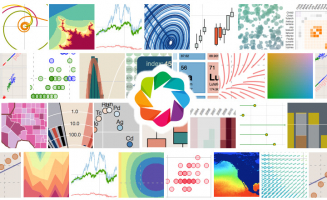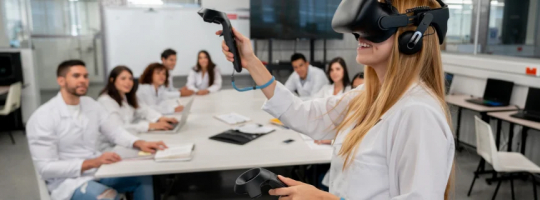Top 10 Best Online Python Courses
Python is one of the most in-demand programming languages since it can be used for web development, data analysis, and more. Like any programming language, it ... read more...can be a challenge to learn without any additional guidance. That’s why Toplist’ve put together this list of the 10 best online Python courses and tutorials you can learn from no matter your budget and learning style.
-
Scientific Computing with Python is at the top of the list of best online python courses.. Python is one of the most popular, flexible programming languages today. You can use it for everything from basic scripting to machine learning. In the Scientific Computing with Python Certification, you'll learn Python fundamentals like variables, loops, conditionals, and functions. Then you'll quickly ramp up to complex data structures, networking, relational databases, and data visualization.
The freeCodeCamp course Scientific Computing with Python is based on Python for Everybody, the Coursera specialization that includes this ranking's top pick. While the specialization on Coursera is paid, you can earn a free certificate of completion on freeCodeCamp. Furthermore, the freeCodeCamp certification includes additional projects, so if you've completed Python for Everyone and want to put your newly acquired knowledge to use, you'll find some hands-on opportunities here.
What You’ll Learn
- Apart from the material from Python for Everybody, you’ll work on five scientific computing projects. Scientific computing is most commonly needed in specialized and technical industries, like engineering or data science. In each project, you will be given some starter code and will be tasked with completing it.
- The first project involves building an arithmetic formatter that aligns arithmetic expressions vertically, just the way you would if you were doing the calculations by hand. You will learn to parse strings, how to deal with edge cases, and also learn how to prettily format text in the command line.
- The second project involves creating a time calculator. You will have to parse an initial time and weekday, add a particular duration to it (say 14 hours), and finally return the new time and day.
- In the third project, you will make a budgeting app. By the end of the project you’ll understand how to create classes and attributes that serve as budget categories, and then print a graph in the command line representing the percentage spent per category.
- For the fourth project, you are tasked with creating rectangle and square classes. These classes should contain the shape attributes as well as methods for calculating the area or getting a string representation of the shape. So you’ll really get to practice OOP, and in particular, inheritance.
- Lastly, the fifth and final project requires you to write a function that can determine the probability of drawing balls of certain colors randomly from a hat. With object oriented programming, you will learn how to create a function with varied arguments, work with Python’s random module, and gain some insight into statistics and probabilities.
How You’ll Learn
- The full 56 lecture set of Python for Everybody is available on freeCodeCamp. And after each lecture, you will be quizzed on what you’ve learnt from the video.
- In total, the certification may take up to 300 hours to complete, but if you already know some of the rudiments of programming, it might take you half as long.
- You’ll also create 5 scientific computing projects, each graded automatically.
Fun Facts
- As you may know, freeCodeCamp is a nonprofit that helps people learn to code by building projects, for free. They offer 10 courses with free certifications.
- freeCodeCamp’s Youtube Channel has more than 5M subscribers and 1200+ videos on a wide variety of programming and computer science topics.
- If you’d like to support freeCodeCamp’s mission of providing free education, you can make a donation here.
- More on Dr. Chuck: he is the Clinical Associate Professor of Information at the University of Michigan, and besides freeCodeCamp, his course is offered on Coursera, edX, and FutureLearn — so pretty much on all major platforms.
Rating: 5.0/5.0
Enroll here: classcentral.com/course/freecodecamp-scientific-computing-with-python-34065
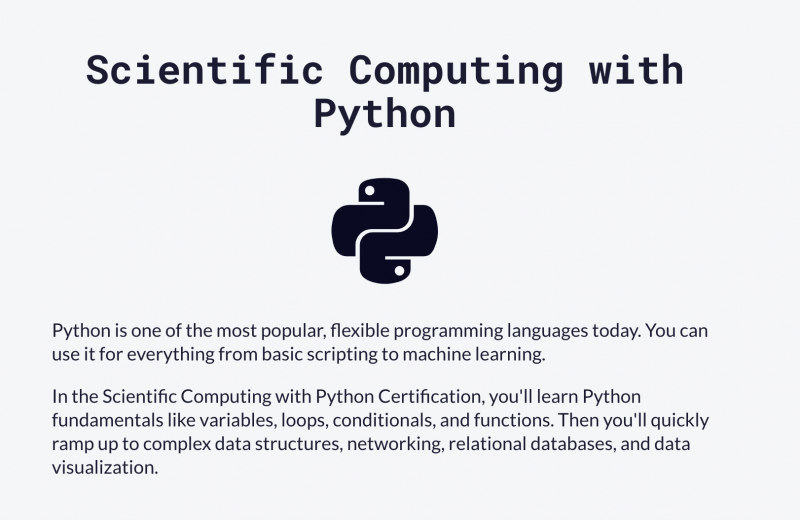
freecodecamp.or -
An Introduction to Interactive Programming in Python (Part 1) (Rice University) ranks 2nd in the list of best online python courses.. An Introduction to Interactive Programming in Python (Part 1), offered by Rice University on Coursera, is the third choice for the best Python programming course. This course is intended to teach students with little to no computing background the fundamentals of creating simple interactive applications in Python, though you will need some high school mathematics background (hopefully you remember the Pythagoras theorem!).
This course differs from others in that it is project-based, encouraging you to build and research things from the ground up, which is a valuable skill for developers in the real world. A word of caution, though – this beginner course isn’t meant to be easy. The instructors say that you'll learn faster from doing hard things (which I’ve found to be true), so you’ll have to dedicate a significant amount of effort to complete the course.What You’ll Learn
- You’ll start the course by learning how to express arithmetic expressions in Python and how to assign values to variables. You’ll see that Python can be used as a calculator!
- Next, the course introduces functions through both a programmatic and a visual perspective. This will give you an understanding on how functions work and how errors may arise from them. T
- he instructor also gives tips on how to debug your code based on the results it’s producing. You’ll learn logical and comparison operators, along with conditional statements, and use these concepts to build a rock-paper-scissor-lizard-Spock game.
- Moving on, you’ll be instructed on the basics of event-driven programming, which are essential to build games and applications. Then, you’ll learn what local and global variables are, which will culminate in you building a simple responsive graphical user interface for a number guessing game.
- You’ll learn how to process strings given by the user and draw text and shapes on a canvas. You’ll use this concept to build a digital stopwatch that’ll keep track of time to the tenths of a second.
- At the end of the course, you’ll recreate the classic game Pong in Python. Along the way, you’ll learn how to work with lists, how to read keyboard input from the user, how to draw and simulate the movement of the ping pong ball in your application, and how to keep track of who won and who lost. This will serve as testament to your ability to create applications with lots of moving parts.
How You’ll Learn
- The course is split into 5 weeks, with each week involving around seven to ten hours of material, including a weekly project. The course comes with a companion website called CodeSkulptor, where you’ll run and submit your Python scripts.
Fun Facts
- The course has 97.3k bookmarks and 3.3k reviews on Class Central.
- This course is the first of seven courses that make up the Fundamentals of Computing Specialization. Upon receiving the specialization certificate, you’ll have completed 20+ projects, including a capstone project.
- Dr. Scott Rixner, one of the course instructors, has worked and developed Python interpreters for both embedded systems and web browsers. He knows his stuff!
Rating: 4.9/5.0
Enroll here: classcentral.com/course/interactivepython1-408
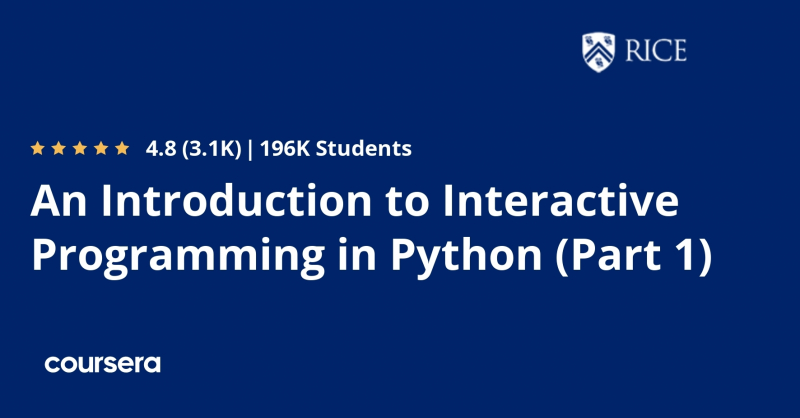
coursera.org 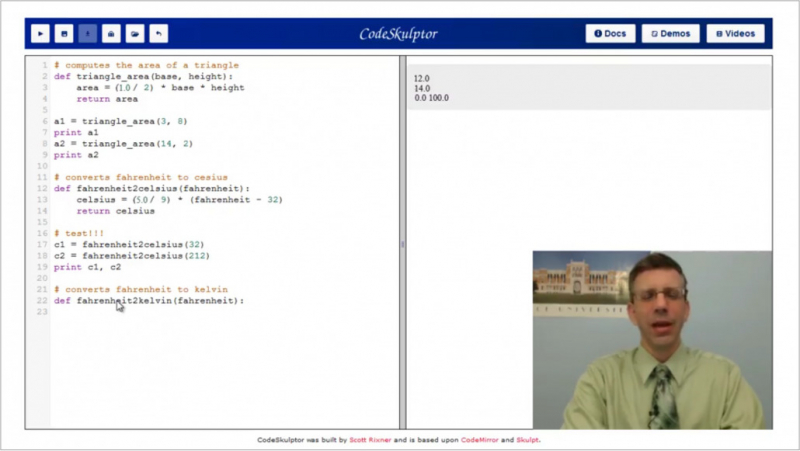
online.rice.edu -
Programming for Everybody — Getting Started with Python (University of Michigan) ranks 3rd on the list of best online python courses.. The overall best Python course for beginners has to be Programming for Everybody, which is offered by the University of Michigan on Coursera. With nearly 2.5 million enrollments, this is Coursera's most popular Python course — and for good reason. The course is a welcoming introduction to the world of programming.
It assumes from the start that you have no experience coding or understanding of how programs work. It then progresses from concept to concept, assisting you in developing a thorough understanding of the Python language. All you need to take this course is a basic understanding of arithmetic. After finishing the course, you will be prepared to take on more advanced programming courses.
What you will learn:
- The course doesn’t immediately start with programming, but instead starts with what you’ll be programming on: a computer.
- What are the basic components of a computer? What is a program, and how does a computer understand it? Why is it so easy for a computer to not do what you tell it to do? These are the questions that you’ll be able to answer by the end of the first part of the course.
- Afterwards, you’ll be shown how to install and run Python on your machine and how to choose a suitable code editor. And then, you’ll get to write code! You’ll be taught the vocabulary of Python, its unique “grammar”, as well as higher-level programming concepts.
- You’ll know how to write variables and expressions to store and compute values, which can be of different data types. You’ll know how and why you can use conditional statements to specify branching conditions in your code. You’ll be taught about functions and arguments, and how to leverage them for code reuse. Last but not least, you’ll understand what loops and iterations do.
- By the end of the course, you’ll know how to write a program that accepts user input, computes a result, and returns an output to the user. A complete experience indeed!
How You’ll Learn
- The course is broken down into 7 weeks, with each week containing about 4 hours of video lectures and programming tasks. The lectures themselves are based on the book that can be found on the accompanying course website, and they’ve been translated into 9 languages, if English isn’t your strong suit.
- Coding assessments, which usually have to be completed two or three times a week, are found on the same course website and will either be automatically graded or graded by another learner taking the course.
Fun Facts
- This course is the first of the five in the specialization Python for Everybody. If you’d like to round up your Python skills after finishing this course, here’s the next one in the series: Python Data Structures — which can also be audited for free.
- If you'd like to take the whole specialization for free, with extra projects, and get a free certification on top, check out the fourth item in this ranking.
- This course has over 123k bookmarks and 35k reviews on Class Central.
- Dr. Chuck’s course is a part of both a list of most-popular courses of all time and best courses of all time. So yeah, this was an easy first pick.
- The course instructor Dr. Chuck is a super popular instructor. If you like his teaching, be sure to check out his other courses on Django and Web Applications.
Rating: 4.9/5.0
Enroll here: classcentral.com/course/python-4319
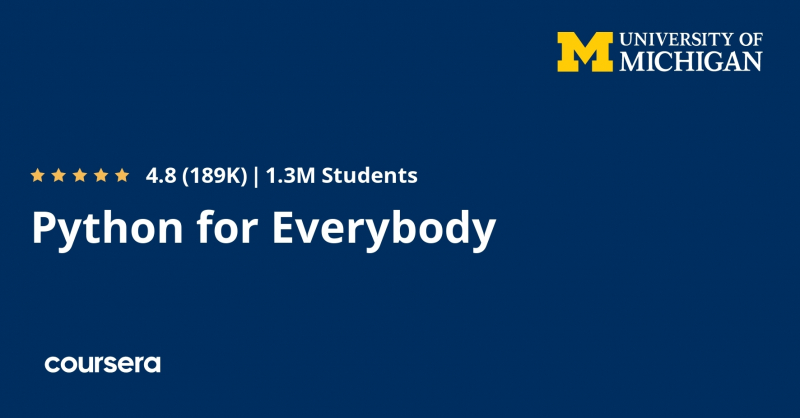
coursera.org 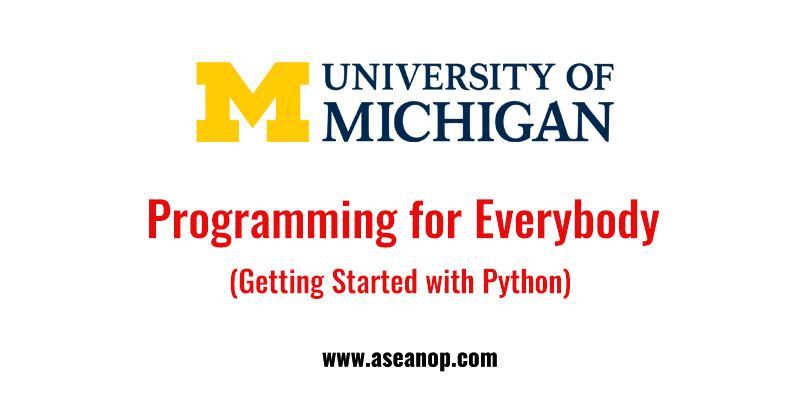
quizerry.com -
Computing in Python I: Fundamentals and Procedural Programming (Georgia Institute of Technology) ranks 4th on the list of best online python courses.. Computing in Python I: Fundamentals and Procedural Programming, offered by the Georgia Institute of Technology on edX, is the second choice for the best Python course. Despite the fact that only basic arithmetic is required, Computing in Python is a robust course designed for students who want to gain a comprehensive understanding of programming and beyond.
The course not only introduces Python, but also the fundamentals of computer science, exposing students to concepts that every programmer can benefit from.
Dr. David Joyner teaches the course. My colleague Manoel happened to have taken four of his courses as part of his online master's degree, and he even met the guy. He only has positive things to say about David Joyner and his courses, which are always meticulously planned, especially in terms of instructional design and teaching methods. The course is part of the Introduction to Python Programming Professional Certificate, which closely matches Georgia Tech's undergraduate introduction to computer science, giving you the skills you need to explore more advanced concepts and prepare for the professional world.
What You’ll Learn
- The course starts with an introduction to computing and explains how computers work. You’ll learn the jargon of computing and understand how code processing works.
- After setting up your programming environment, you’ll be introduced to the basic principles of programming, like the difference between compiling and executing code and the write-run-debug cycle. You’ll know how to analyze the results of running your code and use those results to revise it.
- Next, you’ll be introduced to the paradigm of procedural programming in Python. The course makes you realize that a program is just sequences of lines of code that is executed to fulfill a purpose, and that programs can be chained to achieve more complex functionality.
- Lastly, you’ll study variables, the different types of variables, and the role they play in programs. You’ll be introduced to mathematical, relational, and Boolean operators and understand how to use them to express complex relationships in code and even make “decisions”, such as running certain lines of code only if a predefined condition is met.
How You’ll Learn
- The course consists of 5 weeks of material, and you are expected to spend 9–10 hours a week learning. The course comes with an online book that serves as a basis. Also, each week is dedicated to a specific area of computer science and programming. You are encouraged to skip areas you already know to make the best use of your time.
- There are two kinds of assessments you’ll be able to complete if you audit the course for free: exercises and two practice tests. If you’re a verified learner, you’ll have access to chapter-level problem sets and complete a timed assessment at the end of the course.
Fun Facts
- The professional certificate this course is part of earned a Bronze Award for Computing & IT at the 2020 Reimagine Education awards.
- The course has a whopping 4.8 out of 5.0 rating on Class Central, with several hundred reviews.
- For all practical purposes, you'll be completing the same course that undergrad Georgia Tech students take for credit.
Rating: 4.8/5.0
Enroll here: classcentral.com/course/edx-computing-in-python-i-fundamentals-and-procedural-programming-11469
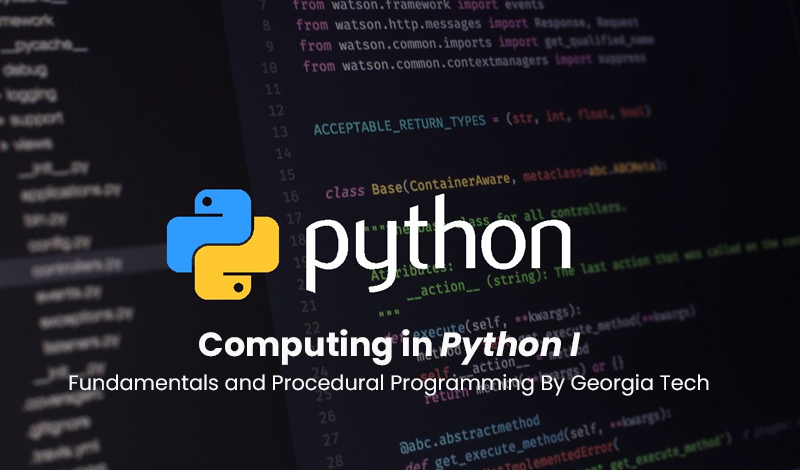
trumplearning.com 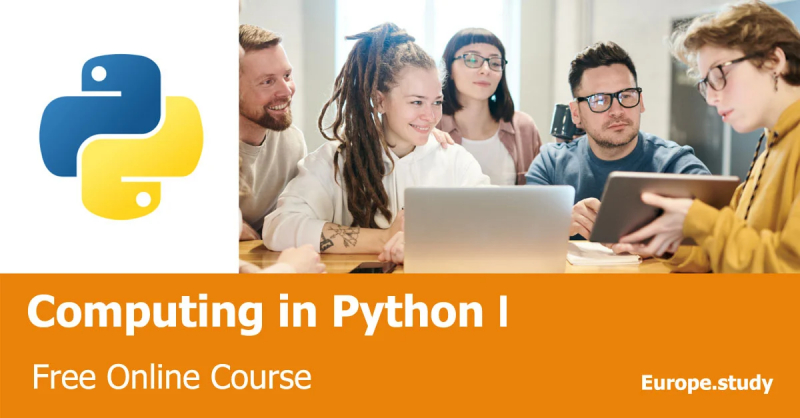
europe.study -
Crash Course on Python (Google) ranks 5th in the list of best online python courses. This course will teach you the fundamentals of writing simple Python programs using the most common structures. There is no prior programming experience required. By the end of this course, you will understand the benefits of programming in IT roles, be able to write simple Python programs, understand how programming building blocks fit together, and be able to combine all of this knowledge to solve a complex programming problem.
You'll begin by learning the fundamentals of writing a computer program. Through interactive exercises and real-world examples, you'll gain hands-on experience with programming concepts along the way. You’ll quickly start to see how computers can perform a multitude of tasks — you just have to write code that tells them what to do.What You’ll Learn
- You’ll start by learning about programming in general and why learning to automate things with your computer can be a time-saving skill.
- Then, you’ll be introduced to Python and its features. For example, you’ll be able to identify, distinguish, and convert different types of data types in Python, you’ll learn what functions are and the role they play in code reuse, you’ll learn about the logical and comparison operators Python offers, as well as conditional statements. The course also teaches you how comments can help make your code cleaner.
- Next, you’ll move on to more advanced topics like loops and iterations, and how to avoid creating infinite loops. A brief section on recursion — a fundamental (but tricky!) programming concept — is also included.
- You’ll dive into common data types like strings, dictionaries, tuples, and lists. You’ll know how to extract certain values from them and how to modify them. There is also an optional section on object-oriented programming, where you’ll learn about classes and their instances, attributes, methods, and inheritance.
- You’ll also learn about documenting with docstrings, how to navigate and use Jupyter notebooks, and how to import and use Python modules in your code. So yeah, this course packs a lot of information.
How You’ll Learn
- The course runs for 6 weeks, with each week being 4 to 5 hours long. You'll learn through video lectures and supplementary notes, and practice what you've learnt in weekly exercises.
- Regarding assignments, at the end of each week you’ll have to complete a graded assignment.
Fun Facts
- It is the first course out of six of the Google IT Automation with Python Professional Certificate.
- The course has around 500K enrollments on Coursera, with about 22K reviews.
- The Grow with Google Initiative this course is part of includes many other resources for online learners.
Rating: 4.8/5.0
Enroll here: coursera.org/learn/python-crash-course
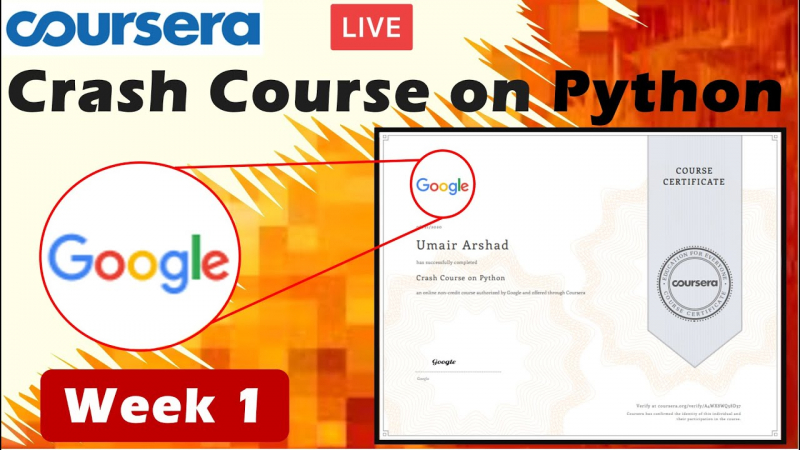
Youtube.com 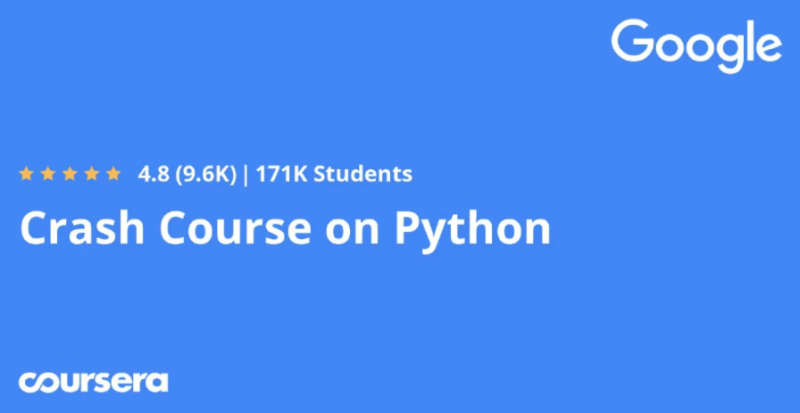
i-programmer.info -
Automate the Boring Stuff with Python Programming ranks 6th on the list of best online python courses. It taught by Al Sweigart on Udemy, should not be overlooked. This course is based on the book Automate the Boring Stuff with Python, which is available for free online. This course is fairly comprehensive and covers topics that other introductory courses do not cover, such as regular expressions, web scraping, and GUI automation.
Furthermore, as you might expect, this course is very hands-on and project-based. Automate the Boring Stuff with Python was written for people who want to get started quickly writing small programs that do practical tasks. Because you don't need to know sorting algorithms or object-oriented programming, this course skips all of the computer science and focuses on writing code that works.What You’ll Learn
- You’ll begin by installing Python on your machine and get familiar with the IDLE, the default programming environment that comes bundled with Python.
- You’ll learn about control flow through the visual of charts, giving you a good understanding of concepts like conditional statements, loops, and iterations. You’ll create your own functions and learn about variable scoping in Python.
- You’ll also learn how to handle errors with the “try-except” blocks before cementing your understanding by building a guess-the-number game.
- Of course, you’ll explore data structures like lists, dictionaries, and strings, and how to manipulate them.
- Using the command line to run Python programs, you’ll discover how to automate stuff on your computer: yep, the course title is accurate! To do so, you’ll study regular expressions, how to navigate directories, and how to read or write files.
- The course explores automating tasks such as web scraping, reading and editing Excel, Word, or PDF documents, sending and checking emails, controlling your mouse and keyboard using Python, and implementing image recognition scripts.
How You’ll Learn
- The course is split up into 16 sections with 51 lectures. In total, it has around 9 hour and 30 minutes of lectures.
- There are 95 downloadable resources, including lectures and other course material.
Fun Facts
- The creator of the course occasionally gives out Udemy coupons to his course for free on Reddit.
- If you have completed the course or book and want to move on to more advanced Python stuff, you can check out the author’s new book, Beyond the Basic Stuff with Python, which is also free online.
Rating: 4.7/5.0
Enroll here: udemy.com/course/automate/
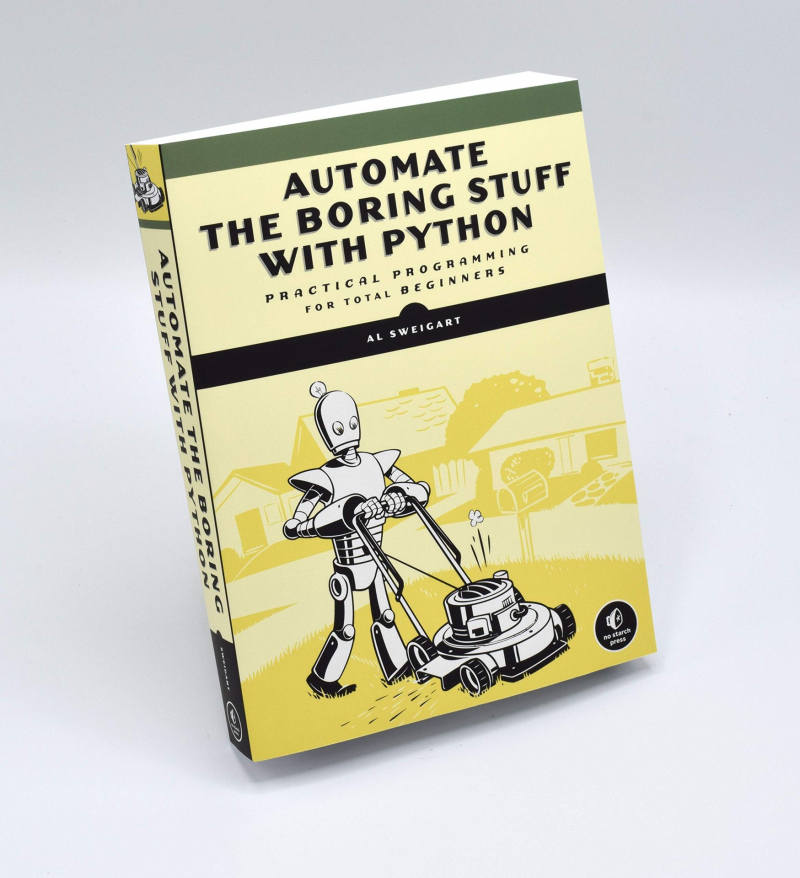
facebook.com 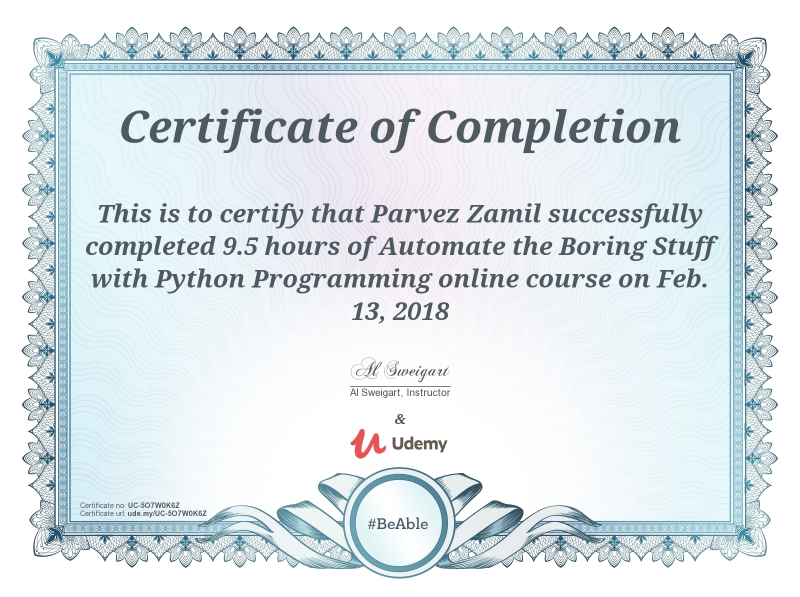
github.com -
Object-oriented Programming in Python: Create Your Own Adventure Game (Raspberry Pi Foundation) ranks 7th on the list of best online python courses. Object-oriented programming is a programming paradigm that prioritizes objects and data over actions and logic. This online course will teach you the fundamentals of object-oriented programming in Python by demonstrating how to create objects, functions, methods, and classes.
You'll apply what you've learned to design your own text-based adventure game. You will be able to share your code with other students and view theirs. If you're a teacher, you'll be able to come up with ideas for using object-oriented programming in the classroom. This course is intended for people who are already familiar with Python programming and want to learn a different programming paradigm, better understand and use existing libraries, or write code that will be useful to others.What You’ll Learn
- The course begins by introducing you to objects, and explaining that pretty much everything is an object in Python. You’ll learn about the methods associated with each object, and use Python's turtle module to draw multiple shapes of different colors and sizes on a canvas.
- Next, you’ll start to code your text adventure game, which will involve coming up with your own classes. You’ll learn about essential methods you can use to operate on instance attributes, like getters and setters — though Python is quite flexible in how it approaches this. Little by little, you’ll add “rooms” and “items” to your text adventure world.
- You’ll also extend other people’s classes through concepts known as inheritance and polymorphism. For instance, you’ll add new attributes and methods to a “Character class” to make an “Enemy class” that your player can fight.
- You’ll learn how to use diagrams to make sense of inheritance, a skill that could be useful later down the road if you ever find yourself planning larger-scale coding projects.
How You’ll Learn
- The course runs for four weeks, with an average time of 2 hours of study per week. The course material consists of videos and accompanying articles.
- FutureLearn is very social: you’ll have access to a dedicated forum under each article where you can discuss with other learners taking the course.
Fun Facts
- The course is based on the Teach Computing Curriculum.
- The lead instructor, Martin O’Hanlon, is the co-author of a book that teaches you how to program in Python while having fun in Minecraft.
- Raspberry Pis are awesome and have applications ranging from robotics to website hosting. The Pi Foundation also offers a getting-started course.
Rating: 4.7/5.0
Enroll here: futurelearn.com/courses/object-oriented-principles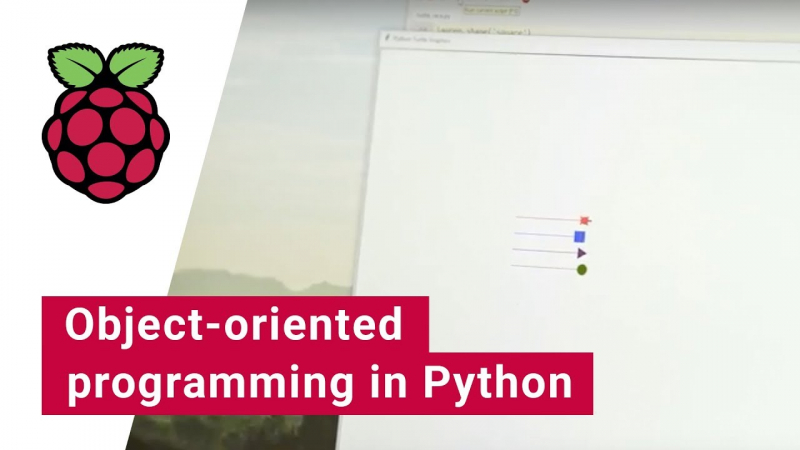
freecodecamp.org 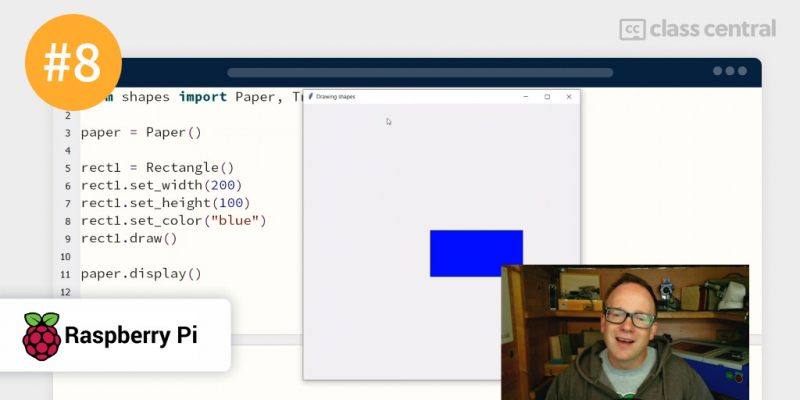
freecodecamp.org -
This is the first of two courses: Introduction to Computer Science and Python Programming, and Introduction to Computational Thinking and Data Science. They are intended to help people who have no prior experience with computer science or programming learn to think computationally and write programs to solve useful problems. Some students will use the two courses as a stepping stone to more advanced computer science courses, but for many, it will be their first and final computer science course.
This run includes Python 3.5 lecture videos, lecture exercises, and problem sets. Even if you previously took the course with Python 2.7, you can easily transition to Python 3.5 in future courses, or enroll now to refresh your knowledge. They chose to focus on breadth rather than depth because these courses may be the only formal computer science courses that many of the students take. The goal is to give students a brief overview of a variety of topics so that they will have an idea of what is possible when they need to think about how to use computation to achieve a goal later in their careers. They are not, however, "computation appreciation" courses.
What You’ll Learn
- The course starts off with a brief introduction to computing. It tells you what computers are, what they do, and some of their limitations.
- It shows you the “recipe” of programming languages: how you combine low-level constructs like variables to build higher-order functionally, like full-fledged programs. And it dives into the features of Python, specifically.
- Like in many other courses in this list, you’ll be taught about objects and data types in Python, and you’ll learn to construct simple expressions using mathematical, logical, or conditional operators.
- You’ll also learn about the fundamental concept behind loops and iterations and how they are essential to building algorithms capable, for instance, of finding the solution to equations without being explicitly “taught” how to do so.
- Moving on, you’ll learn about decompositions and abstraction and how functions serve to achieve those purposes and encapsulate functionality. You’ll know how to write a function and understand global and local scopes. You’ll understand recursion and how it relates to mathematical induction (you can even prove some cool theorems with this!).
- At the end of course, you’ll get your feet wet in the data structures pool: you’ll learn about lists, tuples, and dictionaries. You’ll understand the intricacies of mutability, aliasing, and cloning these data types, as well as methods to operate on them.
How You’ll Learn
- This course is 9 weeks long and you are expected to spend around 14 to 16 hours on lesson materials per week. The course has 6 chapters, each consisting of several lectures and multiple activities to apply your knowledge.
- There are 3 problem sets, as well as a midterm exam and a final exam that you’ll have to complete if you want to earn a certificate.
Fun Facts
- This course is the first of a two-course XSeries Program on edX. The second is Introduction to Computational
- Thinking and Data Science.
- This course teaches you how to install Anaconda instead of the default Python installer. Anaconda is a great tool, most notably if you enjoy data science.
- One of the instructors, Professor John Guttag, leads the Data Driven Inference Group at MIT’s legendary Computer Science and Artificial Intelligence Laboratory (CSAIL).
Rating: 4.5/5.0
Enroll here: classcentral.com/course/edx-introduction-to-computer-science-and-programming-using-python-1341
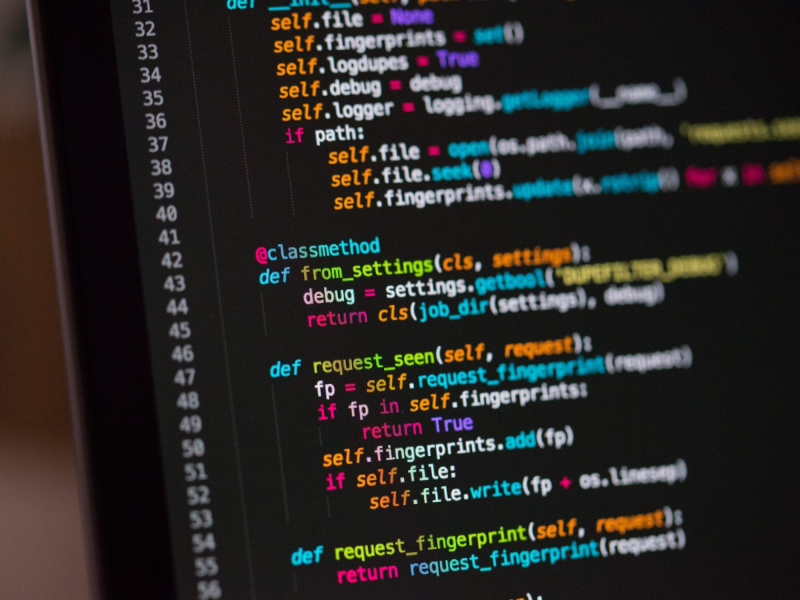
the-dynamics.org 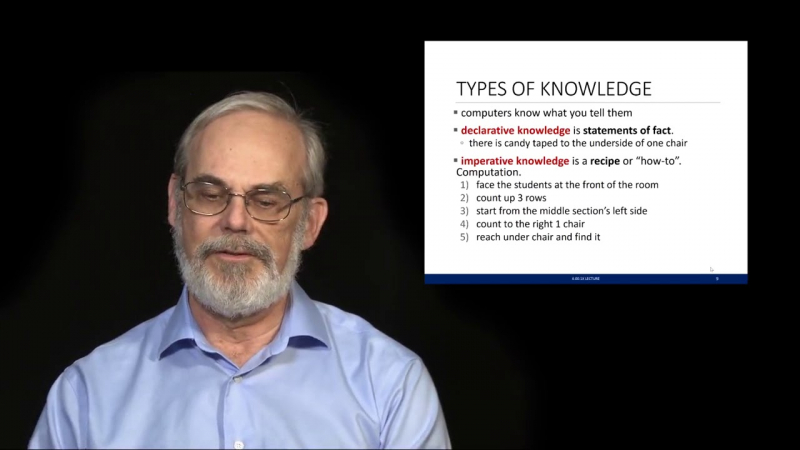
youtube.com -
DataCamp's Intro to Python for Data Science course is exactly what the name implies: it teaches you Python specifically for data science. So, if you want to learn Python with the ultimate goal of entering data science, or if you just want to see what data science is all about, this could be a great course for you. Learn the fundamentals of data analysis in Python. Learn scientific computing with NumPy to broaden your skill set.
Python is a general-purpose programming language that is gaining popularity in data science. Companies all over the world are using Python to extract insights from their data and gain a competitive advantage. This course, unlike other Python tutorials, focuses on Python specifically for data science. In the Introduction to Python course, you'll learn about powerful data storage and manipulation techniques, as well as useful data science tools for getting started with your own analyses. Begin learning Python online with DataCamp right now.
What You’ll Learn
- Starting off with the basics of Python, you’ll learn about variables and the different data types. As precision of numbers is important in scientific calculation, you will be taught when Python implicitly converts types and how to explicitly do so.
- Moving on, you’ll learn about lists and how to use them to store data. You’ll discover how to create lists and manipulate them by subsetting, extending, replacing or deleting their elements.
- You’ll create functions and supply arguments to them. Additionally, you’ll be taught about the different methods that data types like strings and lists may have and how to use them.
- At the end of the course, you’ll import your first Python package, NumPy. NumPy is a popular Python package used by data scientists and analysts. You’ll learn the difference between NumPy arrays and regular Python lists, and you’ll see how easy it is to compute and analyze data with NumPy.
How You’ll Learn
- The course consists of 4 chapters, each about an hour long. After each lecture, you’ll have the chance to apply what you’ve learned in the exercises.
- You’ll code using Datacamp’s in-browser programming environment, making it easy to get started with minimal setup.
Fun Facts
- This is one of the few courses on DataCamp that is completely free.
- The course is just four hours long: unlike some of the longer courses in this ranking, this one is very much focused on Python basics, and it’s a refresher course too.
- If after taking this course, you want to further explore data science, check out a list of the 10 Best Machine Learning Courses to Take in 2022.
Rating: 4.4/5.0
Enroll here: classcentral.com/course/datacamp-intro-to-python-for-data-science-7631
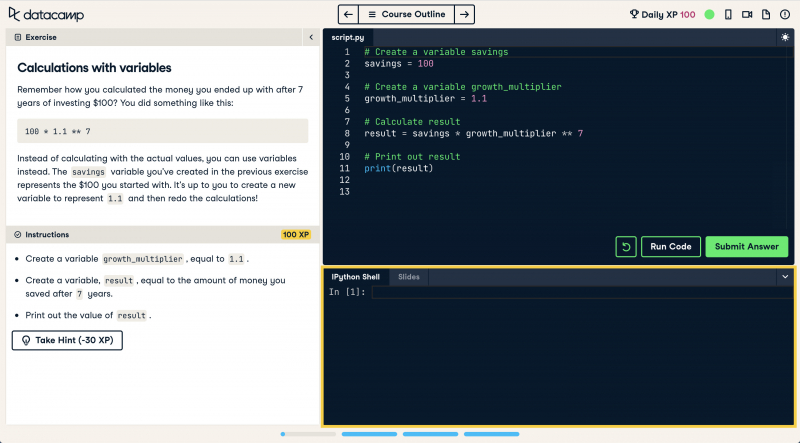
datacamp.com -
This course bridges the gap between Python introductory and advanced courses. While there are many excellent introductory Python courses available, most do not go deep enough to allow you to apply your Python knowledge to research projects. After reviewing the fundamentals of Python 3, you will learn about tools commonly used in research settings in this course.
A new module on statistical learning is included in this version of the course. You will get to practice your new Python skills with various case studies chosen for their scientific breadth and coverage of different Python features, using a combination of a guided introduction and more independent in-depth exploration.
What You’ll Learn
- The course starts with a basic review of Python 3, in order to bring everyone up to speed, in preparation for the following weeks. Before that, however, you are recommended to take a self-assessment quiz to see if the course is a good fit for you.
- In week 2, you’ll start by studying scopes in Python. You’ll then jump into bona fide scientific computing with NumPy, learning about vectorization (an important optimization technique to process calculations in bulk), and you’ll create plots with matplotlib, a very popular visualization library in Python.
- In weeks 3 and 4, you’ll explore specific examples of how Python can be applied in research — study cases, if you will. This exploration will involve topics such as DNA translation, language processing (NLP), classification problems, studying bird migration with GPS data tracking, and social network analysis, among others.
- Finally, you’ll explore statistical learning. With SciPy, you’ll learn and apply the basics of linear and logistic regression, and learn how to use random forests to analyze a movie dataset.
How You’ll Learn
- The course is 5 weeks long and you are expected to spend 2 to 4 hours each week on it. Video lectures and project materials are provided as resources, and in each week you’ll be given one or more homework assignments to complete.
- There'll be final project that you’ll have to complete as a verified learner.
Fun Facts
- The course instructor, Jukka-Pekka "JP" Onnela, was awarded the NIH Director's New Innovator Award in 2013 for his work in digital phenotyping.
- It may not come as a surprise then that he’s Associate Professor of Biostatistics at Harvard University.
Rating: 4.0
Enroll here: pll.harvard.edu/course/using-python-research?delta=0
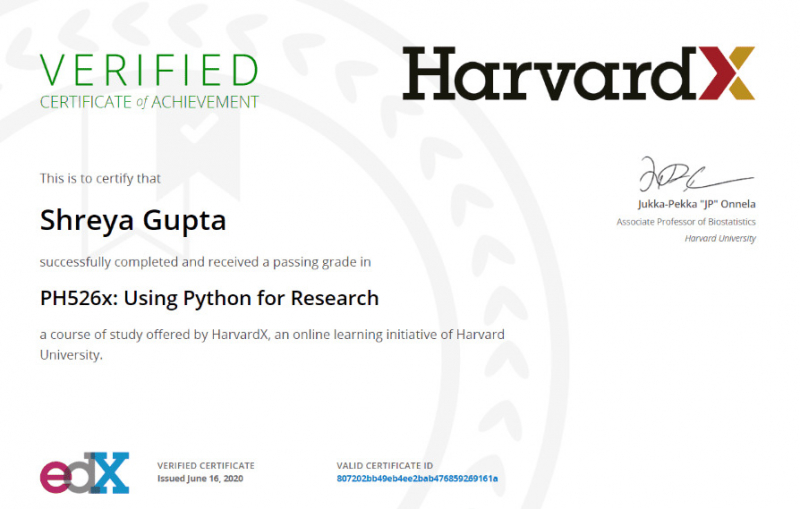
aseanop.com 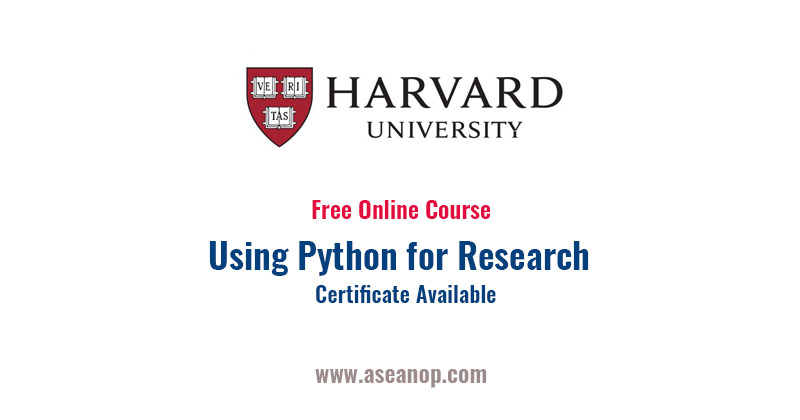
compstix.wordpress.com















